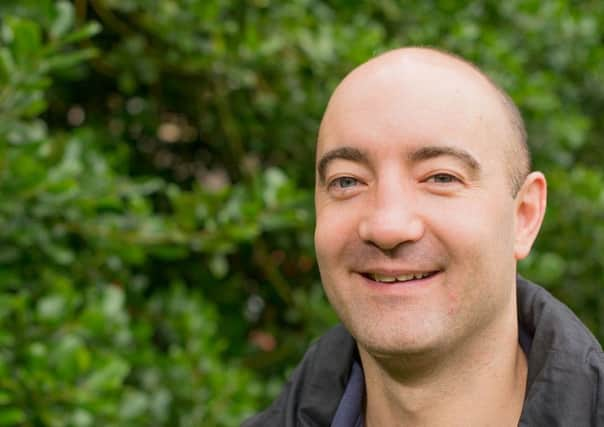Malcolm Jack: '˜Hidden' veterans must not be allowed to fall through the cracks


However, research findings emerging from Scottish charity Venture Trust and insights from the organisation’s work with ex-servicemen and women has highlighted there is a small but significant group of struggling working-age veterans who are not accessing existing support services. These are the ‘hidden veterans’.
The Ministry of Defence defines veterans as anyone who has served for at least one day in the Armed Forces (Regular or Reserve). However, the MoD acknowledges the understanding and use of the term ‘veteran’ does vary, not least amongst those who have served. Tellingly, the MOD also states many former Armed Forces personnel in the UK do not define themselves as veterans.
Advertisement
Hide AdAdvertisement
Hide AdAn independent study of Venture Trust’s programme specifically for veterans struggling with civilian life – Positive Futures – highlighted that ex-servicemen and women who did not take part in a tour of duty, face active combat or were Early Service Leavers (ESLs) showed reservations about engaging with veterans support services.
There are challenges for organisations working with ex-service personnel who don’t immediately identify themselves as ‘veterans’. Some don’t know they are eligible for support, including ESLs and reservists. Some “don’t think they deserve it” or think “other veterans deserve it more than them”. For others, issues emerge many years after leaving the Armed Forces - issues which may or may not have been caused by their forces’ experience - so there is a reluctance to seek support from veterans’ organisations. Studies reveal ESLs along with veterans caught up in the criminal justice system are most at risk of making a poor transition from service to civilian life, so it is important these groups are engaged to access available support.
It is going to take collaborative and interagency partnerships to ensure all those who have served in the Armed Forces - for any length of time and in any capacity and who are struggling with civilian life - feel and know they deserve support. This means appropriate data sharing, and asking the right questions or asking questions differently like “have you ever served in the armed forces?” or “did you ever start training in the armed forces?” rather than just “are you a veteran?”. Venture Trust is working to further strengthen and broaden its partnerships with military charities, the wider third sector and public sector agencies to reach hidden veterans more effectively.
Engaging with agencies appears to be working with criminal justice social workers commenting: “I had no idea that this stream of support existed (before engaging Venture Trust). I had never considered asking whether someone was a veteran or not. I have no connection with the forces and it just wouldn’t have occurred to me to ask.”
The research emerging from Positive Futures – with its wilderness-centred personal development component – is showing the programme is filling a gap. Referrers have said the service appeals to ex-servicemen and women who “refuse to engage with therapeutic programmes but who will engage with an outdoors programme”. The group dynamic and apparent camaraderie of the programme appeals to them. Venture Trust also provides ongoing and sustained one-to-one outreach support to help participants make progress.
A positive civilian future can mean different things to each individual. For some it’s finding a job outside of the Armed Forces, taking up training or education to transition careers, or volunteering in order to make a difference in civilian society. Venture Trust’s programme is also proving to be effective in reducing re-offending amongst ex-service personnel caught up in the criminal justice system. Almost all of the ex-servicemen and women who have been supported by Venture Trust report positive changes in their behaviour, relationships, physical health and mental wellbeing, often improving their employability.
There is also a societal benefit with reduced use and costs of statutory and other services used by participants who have completed part or all of the programme. In the first three years of the Positive Futures programme, at least £2.67m, a ‘return’ of 456 per cent on every £1 spent has been saved.
There are multiple reasons why some veterans end up ‘hidden’. However, it is vital that organisations collaborate to find and support those falling through the cracks. Reaching them, engaging them and helping them overcome their struggles is hugely important to the individuals, to their families and to society as whole.
Malcolm Jack is a member of the senior management team at Venture Trust. To find out more about Venture Trust visit: http://www.venturetrust.org.uk/programmes/positive-futures-programme/